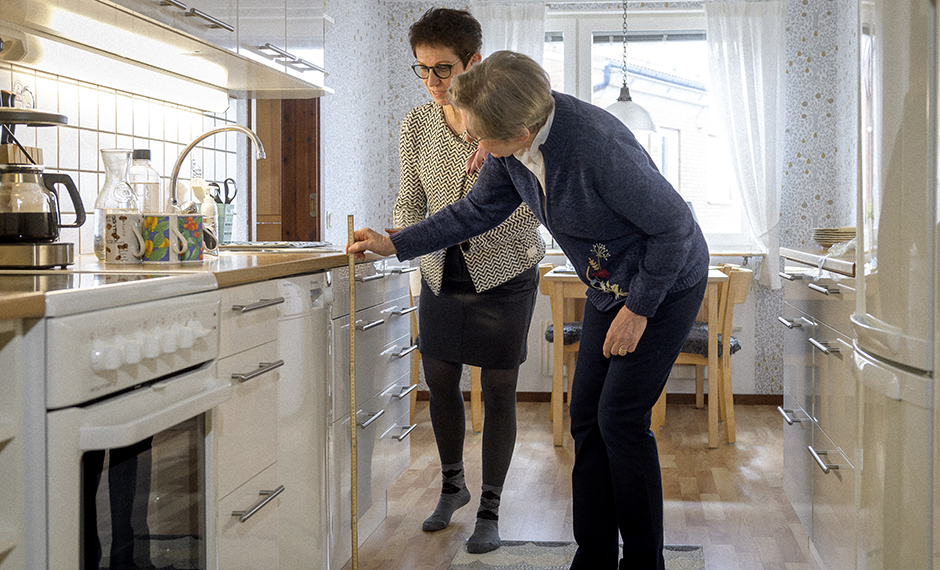Press release 22 September 2021
During September and October, Swedish school pupils, senior citizens and anyone interested will be investigating the environmental barriers that can be found in Swedish housing. To assist them, they will be using a folding rule and mobile app. The research project, the Housing Experiment, is a collaboration between the Swedish Researchers’ Night science festival known as ‘ForskarFredag’ and researchers at Lund University.

Sweden’s population is ageing, and many older people want to be able to continue living in their own home for as long as possible.
“Sweden’s population is ageing, and many elderly people want to be able to continue living in their own home for as long as possible. Unfortunately, this is often affected by various environmental barriers such as stairs, thresholds and narrow doors,” explained Susanne Iwarsson, Professor at the Centre for Ageing and Supportive Environments (CASE) at Lund University and the scientific lead for the Housing Experiment.
In order for society to be able to offer housing that is adapted to meet the needs of the ageing population, we need more and valid knowledge about the environmental barriers that exist in Swedish apartments and houses. This is exactly what the Housing Experiment is seeking to investigate. To gather as much information as possible, Susanne Iwarsson and her research colleagues are enlisting the help of Sweden’s senior citizens and school pupils, plus anyone else who would like to get involved in this mass experiment.
Accessible housing is something that concerns us all and I hope that as many people as possible want to get involved.
“Accessible housing is something that concerns us all and I hope that as many people as possible want to get involved. The more people who participate, the better data we can collect, and the more valid results,” said Susanne Iwarsson.
Using a measuring tape or folding rule and the mobile app, participants answer questions about, for example, the width of doors or height of thresholds in their homes. The method is based upon over 20 years of research on accessibility issues. The results of the experiment will be available to openly access via an interactive web page. Using this page, anyone interested can run basic analyses of how and to what extent environmental barriers generate accessibility problems for user groups with different profiles of functional limitations across different parts of Sweden.
Anyone in Sweden who would like to contribute to research on accessibility is welcome to participate
“Anyone in Sweden who would like to contribute to research on accessibility is welcome to participate,” said Martin Bergman, a researcher at VA (Public & Science).
ForskarFredag’s mass experiment, the Housing Experiment, is a collaboration between the Center for Ageing and Supportive Environments (CASE), a research centre at Lund University, the pensioners’ associations SPF Seniorerna i Skåne and PRO Skåne and the non-profit organisation VA (Public & Science) that coordinates ForskarFredag (Researchers’ Night in Sweden). The pensioners’ associations SPF Seniors, PRO and SKPF are also supporting the project at a national level.
The Housing Experiment is an example of citizen science and is funded by Forte, the Swedish Research Council for Health, Working Life and Welfare, and the European Commission under Grant Agreement 101036199 in the framework of the Marie Sklodowska-Curie actions.
Further information
About ForskarFredag (Researchers’ Night in Sweden)
The Centre for Ageing and Supportive Environments (CASE) at Lund University
Press photos: https://flic.kr/s/aHsmVki4Z4
Press contacts
Susanne Iwarsson, Professor, Coordinator of CASE and the scientific lead responsible for the Housing Experiment
Tel +46 (0)46-222 19 40, e-mail: [email protected]
Martin Bergman, Researcher at VA (Public & Science) and project manager for the Housing Experiment.
Tel +46 (0)70-255 38 91, e-mail: [email protected]

